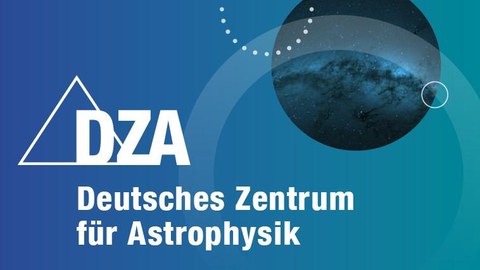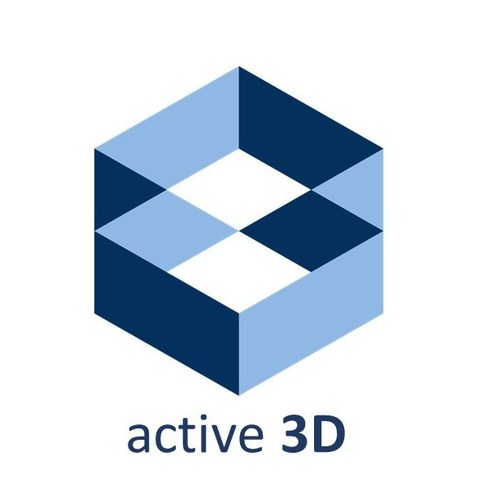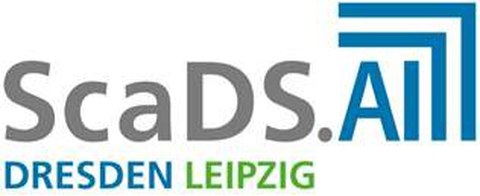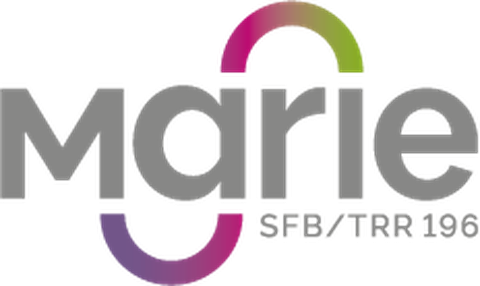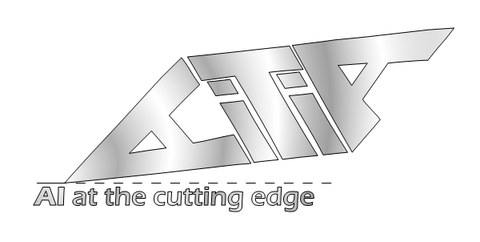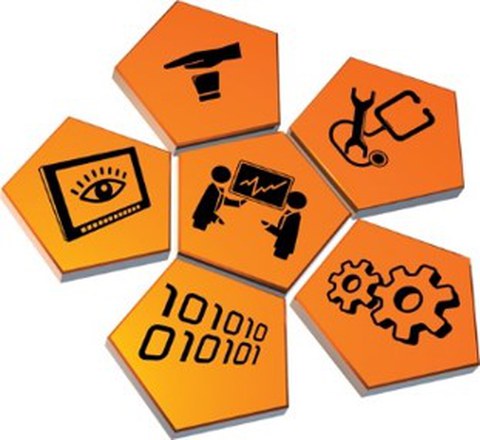Current Research Projects
DFG FOR 5880 Mod4Comp (2026-2030)
Holistic Energy and Performance Modeling for Sustainable Computing (Mod4Comp)
The aim of this research unit is to develop a holistic, scalable modeling framework for the performance and energy requirements of future HPC systems using emerging technologies such as neuromorphic or near/in-memory architectures. The models developed are intended to help minimize the rapidly increasing energy consumption of data centers in the future.
Our main contribution to Mod4Comp is to develop near-memory computing architectures, model their performance and energy consumptions and verify the models based on proxy-kernels from AI applications.
Mod4Comp is funded by the German Research Council (Deutsche Forschungsgemeinschaft, DFG).
The partners are FAU Erlangen-Nürnberg (https://www.fau.de/) and Forschungszentrum Jülich (https://www.fz-juelich.de).
You can find more information under: https://gepris.dfg.de/gepris/projekt/545776403
BMBF DZA (2023 - 2026):
The German Center for Astrophysics is building a large-scale research center with a forward-looking scientific program, a center for digitization that will bring together data streams from astronomical observatories around the globe, and a center for the latest technologies that will cooperate closely with industry and existing technology centers in Saxony and worldwide. Görlitz has been designated as the location for this.
Our main contribution is to efficiently process large-scale data streams from astronomical observatories worldwide by developing an FPGA-based computing cluster. The research addresses programmability challenges and aims to simplify FPGA usage for non-experts.
This initiative is funded by the Federal Ministry of Education and Research (BMBF) and the Free State of Saxony (BMBF). Partners in the consortium are: Technische Universität Dresden, Rat Deutscher Sternwarten, KAT (Komitee für Astro-Teilchen-Physik), Helmholtz Association, Max Planck Society, Fraunhofer Society, Leibniz Association, Verein für datenintensive Radioastronomie (VdR), Stadt Görlitz, and Stadt Hoyerswerda.
DFG SFB/TRR404 Active 3D (2025 - 2028):
TRR404 Next Generation Electronics with Active Devices in Three Dimensions (Active 3D) is a Collaborative Research Center/Transregio jointly led by TU Dresden and RWTH Aachen University. This TRR aims to harness the space above the chip surface by integrating innovative active components. This approach is expected to pave the way for advanced 3D electronic systems, significantly enhancing chip performance and processing speed.
Our main contribution in Active 3D is to develop quantitative models of 3D architectures by designing building blocks and realizing the integration of those blocks in 3D manner. We also explore the usage of several emerging technologies for logic and memory.
Active-3D is supported by the German Research Council (Deutsche Forschungsgemeinschaft, DFG).
The partners are RWTH Aachen and Gesellschaft für Angewandte Mikro- und Optoelektronik GmbH (AMO) in Aachen, Forschungszentrum Jülich (FZJ), Max Planck Institute of Microstructure Physics Halle (MPI-MSP), Nanoelectronic Materials Laboratory GmbH (NaMLab) in Dresden, and Ruhr Universität Bochum (RUB).
You can find more information under: https://cfaed.tu-dresden.de/trr-home
BMBF ScaDS.AI (2022 – 2028):
Center for Scalable Data Analytics and Artificial Intelligence
ScaDS.AI with locations in Dresden and Leipzig is one of the five new AI centers in Germany funded under the federal government’s AI strategy and is to be established as a permanent research facility. The central goal of ScaDS.AI is to bridge the gap between big data, advanced AI methods and knowledge representation.
Our contribution is the investigation of novel hardware / software solutions for enabling reconfigurable AI computing architectures.
ScaDS.AI is funded by the Federal Ministry of Education and Research (BMBF) and the Free State of Saxony (BMBF). Partners in the consortium are: Technische Universität Dresden, Universität Leipzig, Max Planck Institute of Molecular Cell Biology and Genetics, Leibniz Institute for Ecological Urban and Regional Development, Helmholtz Center for Environmental Research, Leipzig and Helmholtz Center Dresden Rossendorf.
More information can be found under: www. scads.ai/
DFG SFB/TRR196 MARIE (2017 - 2028):
Mobile Material Characterization and Localization by Electromagnetic Sensing
The main objective of the Collaborative Research Center is to precisely, i.e. in sub-mm, localize mobile materials and to dynamically characterize their surfaces and sub-surface materials. Models, technologies and concepts are investigated in order to realize a mobile MAteRIal TranscEiver.
Our main contribution is the investigation of a novel parallel computing architecture for energy- and cost-efficient real-time signal processing.
Partners in the consortium are: Universität Duisburg-Essen (Spokesperson), Ruhr-Universität Bochum (Co-Spokeperson), Technische Universität Dresden, Technische Universität Darmstadt, Bergische Universität Wuppertal, Fraunhofer Institut für Mikroelektronische Schaltungen und Systeme, Duisburg.
MARIE is supported by the German Research Council (Deutsche Forschungsgemeinschaft, DFG).
More information can be found under: www.trrmarie.de
Cluster of Excellence CeTI (2019 – 2025):
Centre for Tactile Internet with Human-in-the-Loop
The central goal of the excellence cluster CeTI is to enable humans to interact with machines in real-time over intelligent wide-area communication networks. This way CeTI will democratise the access to skills and expertise for people of different genders, ages, cultural backgrounds, or physical limitations.
Our contributions are the design of a lightweight runtime system for real-time and energy-aware scheduling and task mapping of the sensor signal and data processing algorithms onto the body computing hub as well as integrating and testing the system in a joint demonstrator for human-machine-interaction.
CeTI is funded by the German Research Foundation as part of the Excellence Initiative.
More information can be found under: www.ceti.one
BMBF DAKORE (2022-2025)
The DAKORE project is one of the three winners of the Green-ICT innovation competition of the Federal Ministry of Education and Research (BMBF).
The aim of the project is to significantly reduce the energy consumption of radio access networks such as the 5G network, that is currently being rolled out, by using novel power amplifiers and adaptive control algorithms based on artificial intelligence.
In spite of the efforts to leverage existing savings potentials by switching off or adjusting the power of some of the radio transceivers, the network's quality of service should be unaffected.
Our contribution to the project is the development of FPGA-based adaptive, domain-specific processors to be deployed at the radio network base stations. These will mainly serve the energy-efficient execution of artificial intelligence algorithms to control the power amplifiers.
The project is being led by the Chair of Circuit Design and Network Theory at TU Dresden. Further partners in the consortium are the Deutsche Telekom Chair for Communication Networks and the Chair of Adaptive Dynamic Systems from TU Dresden, as well as Deutsche Funkturm GmbH, brown-iposs GmbH, IMST GmbH, atesio GmbH, CampusGenius GmbH, A.N. Solutions GmbH, National Instruments Dresden GmbH and several other associated industrial partners. The project is funded by the BMBF.
More information can be found in the News.
BMBF 6G-life (2021 – 2025):
Digital transformation and sovereignty of future communication networks
The central goal of the 6G-life research hub is to drive cutting-edge research for future 6G communication networks with a focus on human-machine collaboration. New concepts and solutions for sustainability, security, resilience and latency will be provided to sustainably strengthen the economy and the digital sovereignty in Germany.
Our contributions is the investigation of novel reconfigurable hardware/software systems for accelerating in-network computing and therefore reducing the latency in 6G.
6G-life is funded by the Federal Ministry of Education and Research (BMBF). Partners in the consortium are: Technische Universität Dresden and Technische Universität München.
More information can be found under: www.6g-life.de
AiF-Research Project TrustedIoT (2022 – 2025)
Trusted Computing Architectures for IoT Devices
This project focuses on hardware security aspects for realizing for trusted computing in Industrial Internet of Things devices (IIoT). The project will explore and compare existing solutions, considering commercially available modules and architectures proposed in academia. Shortcomings of these solutions for resource-constrained IoT devices will be identified and a bottom-up approach will be applied for building a trusted computing architecture (i.e., hybrid architecture) that overcomes these shortcomings. The findings will be demonstrated using five use cases that focus on: environmental sensing, Industrial IoT, Unmanned Aerial Vehicles, mobile and cooperative robots.
Our contribution is investigating security requirements of FPGA-based IoT systems that demand low-power but still efficient solutions. We will realize a secure and flexible ultra-low powered FPGA solution and evaluate it for a mobile robotic use case.
TrustedIoT is funded by the German Federation of Industrial Research Associations "Otto von Guericke" e. V. (AiF) as part of a transnational CORNET project. The action partners in the consortium include : Gesellschaft zur Förderung angewandter Informatik e.V. (GFaI), Vrije Universiteit Brussel, Katholieke Universiteit Leuven, Brandenburgische Technische Universität Cottbus-Senftenberg, Technische Universität Dresden as well as a project support committee consisting of small and medium-sized enterprises (SMEs) in Germany and Belgium.
Finished Projects
ESA EUFRATE (2021 – 2024):
European FPGA Radiation-hardened Architecture for Telecommunications
The central goal of EUFRATE it researching and developing state-of-the-art and innovative hardening techniques for Commercial-Off-The-Shelf (COTS) Field Programmable Gate Array (FPGA) devices for digital telecommunication payloads. Our contributions is the investigation of hardware/software solutions for designing and managing an FPGA cluster.
EUFRATE is funded by ESA as part of the ESA Advanced Research in Telecommunications (ARTES 4.0) program. Partners in the consortium are: ARGOTEC S.r.l., Politecnico di Torino and Technische Universität Dresden.
More information can be found under: http://www.argotec.it/online/2021/12/01/argotec-is-the-prime-contractor-in-esas-eufrate-project/
ESF junior research group Re-Learning (2020 - 2022):
Self-learning and flexible electronics through inherent component reconfiguration
This ESF research project aims to investigate a novel approach for "hardware-based self-learning electronic systems", which connects sensors to a dynamically self-adjustable circuit and based to the current situation reacts quickly and energy-efficiently. Circuits based on reconfigurable field-effect transistors (RFETs) and flexible, ambipolar organic semiconductors will be used for this purpose.
Our contribution is the realization of a reconfiguration manager for reconfigurable self-learning image processing systems based on RFETs.
Re-Learning is funded by the European Union and the Free State of Saxony within the European Social Fund (ESF). The following professors of Technische Universität Dresden are among the action partners in the consortium: Prof. Mikolajick, Prof. Helm, Dr. Erbe, Prof. Leo, Prof. Mannsfeld, Prof. Reineke, Prof. Voit, Prof. Kumar, Prof. Ellinger, Prof. Göhringer.
TG70 SNIFFBOT (2019 – 2022):
Sniffing Dangerous Gases with Immersive Robots
The aim of the project is to investigate and develop methods and technologies for semi-autonomous, gas-sniffing robots, so-called sniff-bots. For this purpose, drones and mobile robot platforms will be equipped with modern sensors and hardware/software systems to detect toxic gases and, by means of immersive software, enable the user to remove or seal the source of the toxic gases.
Our contribution is the research of new hardware/software codesign solutions to preprocess and merge as much sensor data as possible on the drones in an energy efficient way.
SNIFFBOT is funded by the Free State of Saxony within the TG70 research funding. Action partners in the consortium include the following chairs from the engineering sciences department of the Technische Universität Dresden: Chair of Software Technology, Chair of Adaptive Dynamic Systems, Chair of Computer Networks, Chair of Fundamentals of Electrical Engineering, Chair of Process Control Engineering, Chair of Machine Tool Development and Adaptive Controls, and Chair of Materials Science and Nanotechnology.
AiF-Research Project CORNET AITIA (2019 – 2021):
Embedded AI Techniques for Industrial Applications
This project aims at developing and demonstrating 'best practices for embedded AI' using Field Programmable Gate Arrays (FPGAs) by means of industrial case studies on 4 application domains relevant to the European industry and SMEs: Embedded Security: Intrusion detection by AI in network routers, Smart Sensing: Improving sensor accuracy by AI and detecting sensor-anomalies by AI, Automotive and Mobile Robots: Machine Vision for Mobile Systems and Industry 4.0: Machine Learning for Predictive Maintenance.
With our expertise in machine vision for mobile systems using FPGAs, we contribute to the automotive and mobile robots use case.
AITIA is funded by the German Federation of Industrial Research Associations "Otto von Guericke" e. V. (AiF) as part of a transnational CORNET project. The action partners in the consortium include : Gesellschaft zur Förderung angewandter Informatik e.V. (GFaI), Vrije Universiteit Brussel, Katholieke Universiteit Leuven, Brandenburgische Technische Universität Cottbus-Senftenberg, Technische Universität Dresden as well as a project support committee consisting of small and medium-sized enterprises (SMEs) in Germany and Belgium.
BMBF SysKit (2017 - 2020):
DESIGN TOOL FOR APPLICATION-SPECIFIC HARDWARE-BASED SECURE TECHNOLOGIES FOR I4.0 APPLICATIONS
The main objective of the project is to develop a design tool for secure Industry 4.0 applications called SysKit. The tool will use a standardized and extendable module library, consisting of different hardware- and operating system modules to ensure secure and energy-efficient data transfer and -encoding. Our main contribution is the design of energy-efficient modules for real-time operating systems.
SysKit is supported by the Bundesministerium für Bildung und Forschung (BMBF) in the call: IKT2020 Hightech for IT-Security. Partners in the consortium are: NXP Semiconductors Germany GmbH (Coordinator), Technische Universität Dresden, Ruhr Universität Bochum, FZI Forschungszentrum Informatik, IMST GmbH, Hirschmann Automation and Control GmbH, Hochschule für Wirtschaft und Technik Aalen.
More information can be found under: www.syskit-projekt.de
BMBF PARIS (2017 - 2020):
PARALLEL IMPLEMENTATION-STRATEGIES FOR HIGHLY AUTOMIZED DRIVING
The main objective of the project is the design of a heterogeneous multiprocessor platform with optimized compiler and processing elements to compute self-learning algorithms for autonomous driving in real-time and with a high energy-efficiency. The platform will be evaluated using a simulator and an FPGA-based demonstrator. Our contribution is the design of a novel runtime adaptive IP-core and its integration into the simulator and the FPGA-based demonstrator.
PARIS is supported by the Bundesministerium für Bildung und Forschung (BMBF) in the call: IKT 2020-Elektroniksysteme für das vollautomatisierte Fahren (ELEVATE) . Partners in the consortium are: Universität Hannover (Koordinator), RWTH Aachen, Technische Universität Dresden, Robert Bosch GmbH, NISYS, BASELABS GmbH, Silexica, videantis GmbH, Elektrobit Automotive GmbH.
H2020 TULIPP (2016 - 2019):
TOWARDS UBIQUITOUS LOW-POWER IMAGE PROCESSING PLATFORMS
The main objective of Tulipp is to develop a a reference platform (configurable hardware solution, real-time operating system and programming toolchain) for high performance and energy-efficient image processing embedded systems. New standards derived from its reference platform to the industry will be proposed. Our main contribution is the development of a programming methid for heteregoneous multicore systems with FPGA accelerators.
TULIPP is funded by the European Commission through the Horizon 2020 Programme (H2020/ICT-04-2015) under the Innovation Action. Partners in the consortium are: Thales SA, France (coordinator), Ruhr-Universität Bochum (RUB), Germany, Sundance Multiprocessor Technology LTD, United Kingdom, HIPPEROS SA, Belgium, Fraunhofer Institute of Optronics, System Techologies and Image Exploitation IOSB, Germany, Norges Teknisk-Naturvitenskapelige Universitet (NTNU), Norway, Synective Systems AB, Sweden, Efficient Innovation SAS, France.
More information can be found under: www.tulipp.eu

